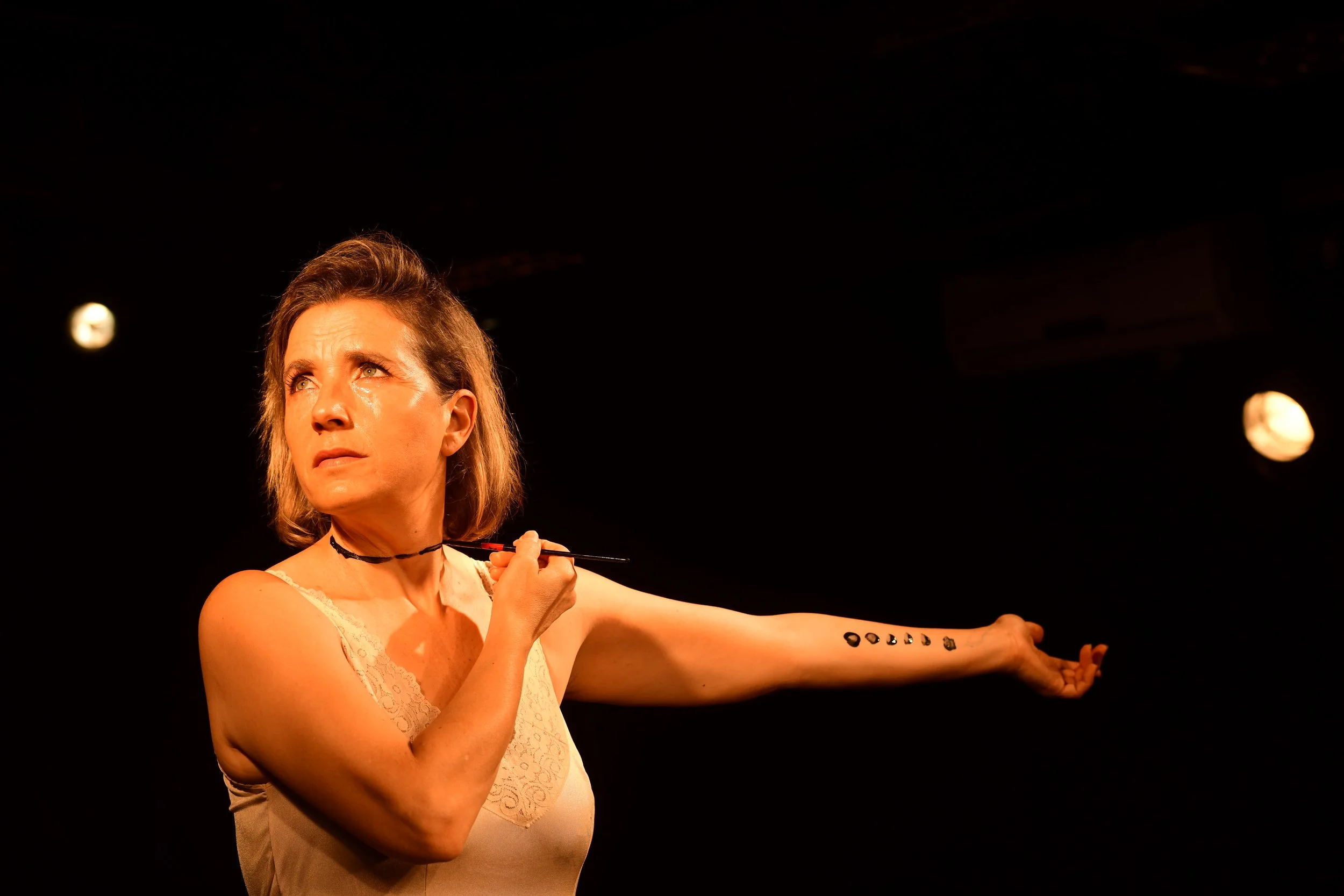In one-woman play Whistle, Hadar Galron delves into the past, present, and future of the Holocaust
Actor-playwright developed semi-autobiographical monodrama with Yaakov Buchan, the son of Nazi doctor Josef Mengele’s secretary
Whistle. Photo by Nathan Yakobovitch
The Chutzpah! Festival presents Whistle at the Firehall Arts Centre on November 14 and 15 at 8 pm
WHEN STIR CAUGHT UP with Israeli actor, comedian, and playwright Hadar Galron for a Zoom interview last month, she was not in her home country. Instead, she appeared, framed in a rectangle of screen, from temporary lodgings in Zvolen, Slovakia, where she had opened a play mere hours after Hamas terror attacks in Israel on October 7.
“I got up on stage after the show, and in tears, I just told them what had happened that day in Israel,” Galron shares. “With no mercy on the packed audience, I just told them what had happened. Everything, the rapes, and all that I knew. I didn’t know the most awful things then. I told them about the kidnaps, and the rapes, and the massacres, and the real pogrom that it was. I said, ‘I want you to remember this day.’”
Those words caught the attention of local media, and within days, Galron, whose flight to Israel had been cancelled, and then cancelled again, found herself becoming something of a spokesperson about the conflict, appearing on Eastern European TV, radio, and podcasts: “I began speaking at colleges and universities here.…and I have a meeting planned with the president of Slovakia in order to explain, to do hasbara, of the situation.”
When she arrives in Vancouver this month, it won’t be as a spokesperson, but as a performer, presenting her monodrama Whistle for the first time since violence erupted in the Middle East. Galron developed the play with author Yaakov Buchan, whose mother was Nazi doctor Josef Mengele’s secretary, and adapted it into a semi-autobiographical work.
“It’s a contemporary story of a woman, aged 45, who was born to two Auschwitz survivors,” she explains. “Suddenly, she realizes in the middle of her life that she never really loved, because she never really was loved. Because after such a trauma, her parents didn’t know how to love. Suddenly, a chance of love comes into her life. But in order to enable herself, she needs to fight all the ghosts, all her old ghosts that she didn’t deal with.”
Galron is well aware that she’ll be performing the work in an environment where the rise of antisemitism and anti-Israel sentiment has many in the Jewish community feeling scared for their own safety. She’s already cancelled American dates for the staging, out of fear for her own. But she insists that this is not the time for her to be silent.
“Now, this is not history,” she says of Whistle. “This is speaking about here and now. We have been through a mini Holocaust… We went from zero to 360 in one second, from being in a comfortable, safe place, more or less than, or in a music festival, a music peace festival, to being in the midst of a pogrom.”
In writing the play about a woman searching for love after trauma, Galron says she had an awakening, one that she hopes to see brought to bear on the current situation. “There’s one sentence I wrote that was a revelation for me: that the opposite of death is not life. The opposite of death is love. I think that all hate, and all prejudice, and all racism comes from fear. And when trying to heal, even a situation such as now, the only way I know of healing this kind of thing is by loving more.”














